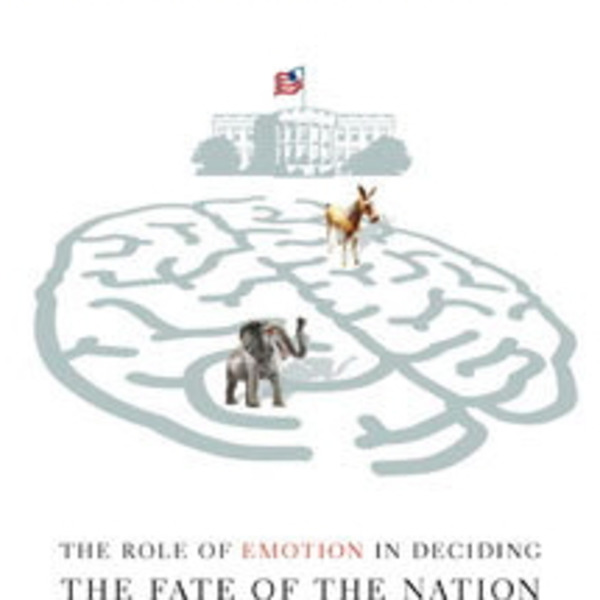
Drew Westen is Professor in the Departments of Psychology and Psychiatry at Emory University in Atlanta, Georgia. He received his undergraduate degree from Harvard University, an M.A. in Social and Political Thought from the University of Sussex (England), and a Ph.D. in Clinical Psychology from the University of Michigan, where he taught introductory psychology for several years. In January 2006 a group of scientists led by Drew Westen announced at the annual Society for Personality and Social Psychology conference in Palm Springs, California the results of a study in which functional magnetic resonance imaging showed that self-described Democrats and Republicans responded to negative remarks about their political candidate of choice in systematically biased ways. Specifically, when Republican test subjects were shown self-contradictory quotes by George W. Bush and when Democratic test subjects were shown self-contradictory quotes by John Kerry, both groups tended to explain away the apparent contradictions in a manner biased to favor their candidate of choice. Similarly, areas of the brain responsible for reasoning (presumably the prefrontal cortex) did not respond during these conclusions while areas of the brain controlling emotions (presumably the amygdala and/or cingulate gyrus) showed increased activity as compared to the subject's responses to politically neutral statements associated with politically neutral people (such as Tom Hanks) Subjects were then presented with information that exonerated their candidate of choice. When this occurred, areas of the brain involved in reward processing (presumably the orbitofrontal cortex and/or striatum/nucleus accumbens) showed increased activity. As Dr. Westen said, "None of the circuits involved in conscious reasoning were particularly engaged... Essentially, it appears as if partisans twirl the cognitive kaleidoscope until they get the conclusions they want... Everyone... may reason to emotionally biased judgments when they have a vested interest in how to interpret 'the facts.'"
